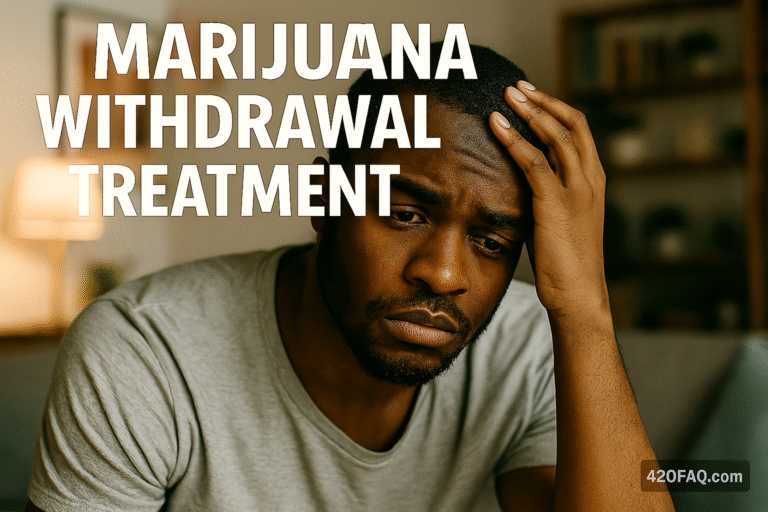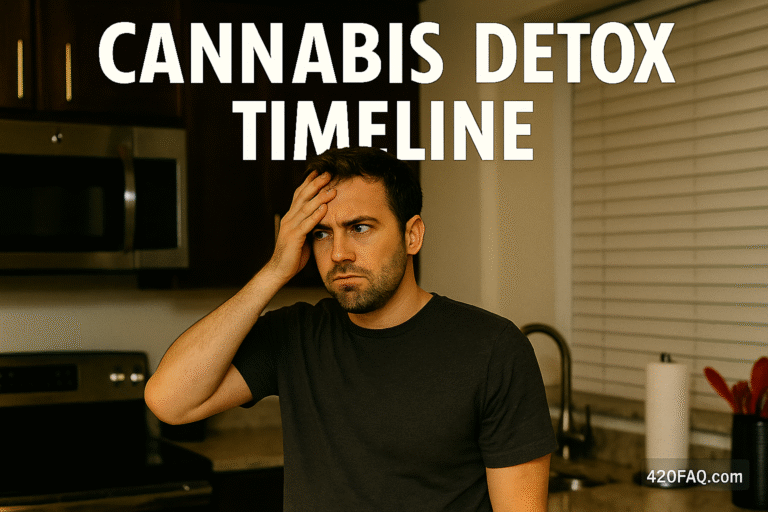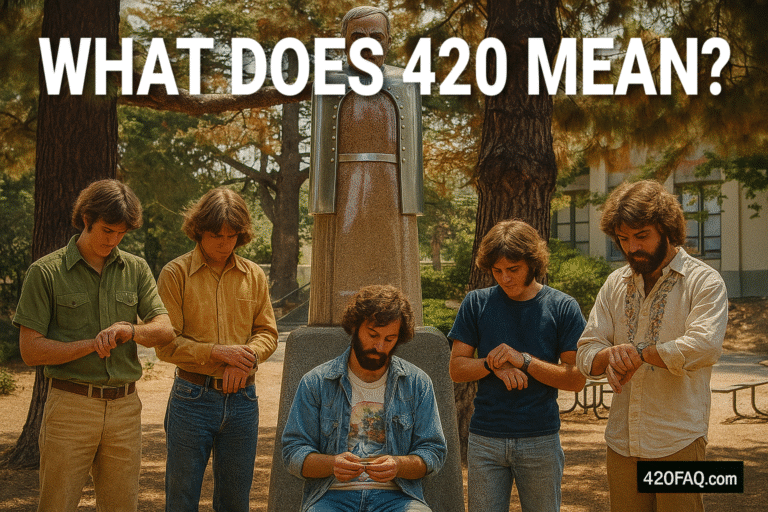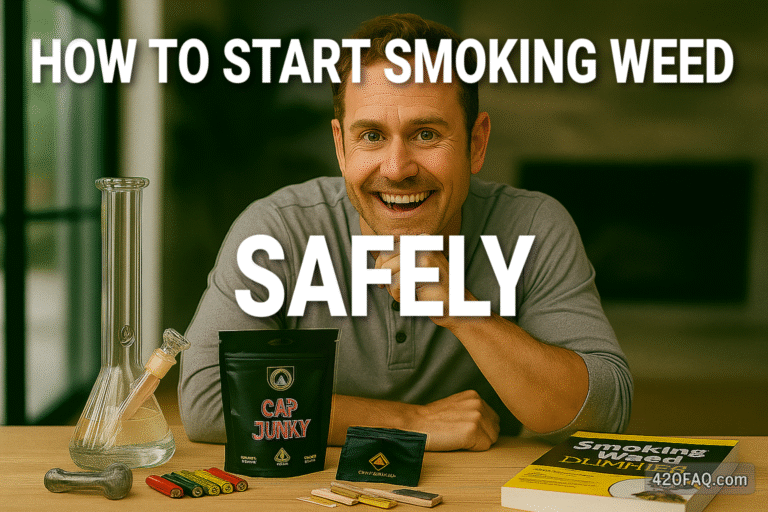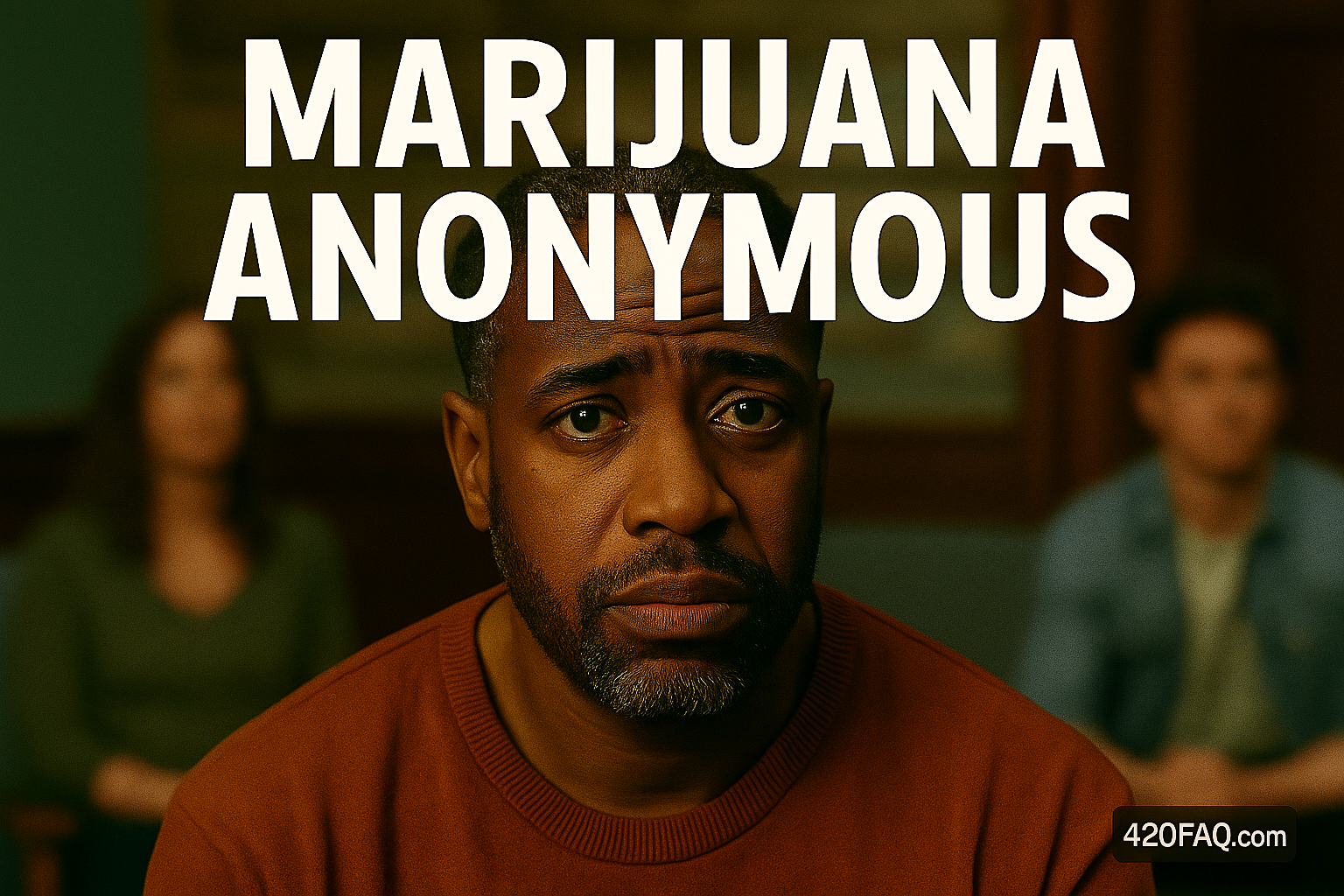
Marijuana Anonymous: Comprehensive Guide to Recovery and Support
Understanding Marijuana Anonymous represents crucial knowledge for individuals seeking recovery from cannabis addiction, whether for personal health goals, family relationships, professional development, or spiritual growth. The Marijuana Anonymous fellowship provides a 12-step program specifically designed for those struggling with marijuana dependence, offering support, guidance, and proven recovery principles adapted from Alcoholics Anonymous. Comprehending how MA works, what to expect in meetings, and which resources are available empowers individuals to navigate their recovery journey with realistic expectations and appropriate strategies.
Understanding Marijuana Anonymous and Its Foundation
Marijuana Anonymous fundamentals begin with understanding how this fellowship was created, its core principles, and the supportive community structure that helps members achieve and maintain abstinence from cannabis through shared experience and mutual support.
The history of Marijuana Anonymous began in 1989 when a small group of recovering marijuana addicts in California recognized the need for a fellowship specifically addressing cannabis addiction. Since then, MA has grown into an international organization with meetings across the United States and in numerous countries worldwide. The fellowship operates on the principle that marijuana addiction is a real condition requiring specialized support and understanding.
Effective understanding of Marijuana Anonymous recognizes that recovery experiences vary dramatically between individuals based on usage history, personal circumstances, willingness to engage with the program, support systems, and commitment to the 12-step principles. These individual differences mean that recovery timelines and experiences represent personal journeys, with each member progressing at their own pace through the stages of healing and growth.
The prevalence of marijuana addiction has increased substantially with higher THC potency, increased social acceptance, and widespread availability. Studies indicate that approximately 9% of marijuana users develop dependence, with rates increasing to 17% for those who start using in adolescence. Understanding that cannabis addiction is real and treatable is essential for individuals considering Marijuana Anonymous as a recovery option.
The 12 Steps of Marijuana Anonymous
The Marijuana Anonymous program unfolds through twelve distinct steps adapted from Alcoholics Anonymous, each characterized by specific spiritual principles, personal insights, and behavioral changes requiring different timeframes and commitment levels based on individual readiness and circumstances.
Step One involves admitting powerlessness over marijuana and recognizing that life has become unmanageable. During this foundational step, members acknowledge the reality of their addiction and accept that they cannot control their cannabis use through willpower alone. This honest self-assessment creates the foundation for all subsequent recovery work and represents the essential first breakthrough in the healing process.
Steps Two and Three focus on developing faith in a Higher Power and making a decision to turn one’s will and life over to that Power’s care. For many in Marijuana Anonymous, these spiritual steps prove challenging initially but become sources of strength and guidance. The program emphasizes that members can define their Higher Power in personal terms, whether traditional religious concepts or simply the collective wisdom of the fellowship.
Steps Four through Nine involve rigorous personal inventory, admission of wrongs, readiness for change, asking for removal of defects, making amends lists, and actually making those amends where possible. During these action-oriented steps, members engage in deep self-examination and take concrete steps to repair damage caused by their addiction. This middle phase of recovery work typically requires months to years for thorough completion.
Steps Ten through Twelve establish ongoing practices for maintaining recovery: continued personal inventory, prayer and meditation, and carrying the message to other marijuana addicts. These maintenance steps become lifelong practices that keep members connected to their recovery, growing spiritually, and helping others find the same freedom they’ve discovered through Marijuana Anonymous.
What to Expect at MA Meetings
Various Marijuana Anonymous meeting formats serve different purposes and structures, making understanding of specific meeting types essential for individuals seeking the fellowship and attempting to find the right fit for their recovery needs and personal preferences.
Open meetings welcome anyone interested in learning about marijuana addiction and recovery, including addicts, family members, researchers, and curious individuals. These meetings provide opportunities for newcomers to observe the fellowship without pressure to participate. Open meetings typically feature speaker shares where members tell their stories of addiction and recovery, offering hope and identification for those considering joining MA.
Closed meetings limit attendance to those who identify as marijuana addicts or believe they may have a problem with cannabis. These meetings provide safe spaces for honest sharing about struggles, fears, and victories without concern about outside judgment. Closed meetings foster deeper intimacy and vulnerability among members facing similar challenges.
Step meetings focus specifically on studying and discussing the 12 steps, with meetings devoted to individual steps on rotating schedules. Participants share their experiences working particular steps, offering insights and support to others at various stages of step work. These meetings provide essential education about the recovery program’s core structure.
Literature meetings involve reading and discussing MA-approved literature, including the “Life with Hope” text and other fellowship materials. These meetings help members understand program principles, learn from others’ experiences, and develop deeper comprehension of recovery concepts. Literature study reinforces key teachings and provides frameworks for applying principles to daily life.
Speaker meetings feature one or more members sharing their complete stories—what their addiction was like, what happened to bring them to MA, and what their lives are like now in recovery. These powerful testimonials offer hope, demonstrate that recovery is possible, and help newcomers identify with others who have walked similar paths.
Core Principles and Recovery Tools
Marijuana Anonymous effectiveness depends on numerous core principles and practical tools that influence members’ ability to maintain abstinence, grow spiritually, and build fulfilling lives free from marijuana dependence, making understanding and application of these elements essential for successful recovery.
Abstinence represents the foundational requirement for Marijuana Anonymous participation and recovery. The program maintains that complete cessation of marijuana use is necessary, as any continued use perpetuates addiction patterns and prevents genuine recovery. Some meetings extend abstinence expectations to all mood-altering substances, while others focus specifically on marijuana, allowing members to define their own sobriety parameters with sponsor guidance.
Sponsorship provides one-on-one mentoring relationships where experienced MA members guide newcomers through the 12 steps and offer support during challenging times. Sponsors share their experience, strength, and hope while helping sponsees apply program principles to their lives. Developing a sponsor relationship typically occurs after attending several meetings and finding someone whose recovery resonates personally.
Fellowship and community support form the heart of Marijuana Anonymous, with members developing genuine friendships and support networks that replace drug-centered relationships. Regular meeting attendance creates consistent connection points, phone lists enable members to reach out during crises, and social activities provide substance-free socialization opportunities. This sense of belonging combats the isolation common in addiction.
Service work involves volunteering within the fellowship—making coffee, setting up chairs, serving as meeting secretary or treasurer, or representing the group at area assemblies. Service helps members stay connected, builds self-esteem, reinforces humility, and ensures the fellowship remains available for future marijuana addicts seeking help. The principle of “service keeps you sober” reflects the program’s emphasis on helping others.
Daily practices including prayer, meditation, reading MA literature, and maintaining conscious contact with one’s Higher Power support ongoing recovery between meetings. These personal spiritual practices keep recovery priorities front-of-mind, provide guidance during challenges, and foster the inner peace and clarity that make abstinence sustainable long-term.
Benefits of Marijuana Anonymous Participation
The benefits of engaging with Marijuana Anonymous occur through multiple therapeutic mechanisms: peer support eliminating isolation, structured program providing recovery framework, spiritual development fostering purpose and meaning, and accountability supporting abstinence commitment during vulnerable periods.
Peer understanding and identification create unique healing opportunities unavailable in traditional therapy or family relationships. MA members share the specific experiences of marijuana addiction—the denial, the failed quit attempts, the progressive loss of control—creating instant rapport and credibility. Hearing others articulate feelings and behaviors one thought were unique reduces shame and proves recovery is possible.
Structured recovery framework through the 12 steps provides clear direction for individuals overwhelmed by the prospect of lifelong abstinence. Rather than facing an undefined future without marijuana, members have concrete actions to take, specific principles to apply, and measurable progress markers. This structure reduces anxiety and builds confidence through systematic growth.
Spiritual development and meaning-making help members discover purpose beyond marijuana use. Many addicts report feeling spiritually empty during active addiction; MA’s emphasis on Higher Power connection, service, and personal growth fills this void with genuine fulfillment. Spiritual awakening—the promised result of working the steps—transforms members’ entire life perspective.
Accountability and external support prevent the isolation that often leads to relapse. Regular meeting attendance creates expectations, sponsor check-ins provide monitoring without judgment, and fellowship relationships motivate continued abstinence. Knowing others care about one’s recovery and will notice absence creates positive pressure to maintain commitments.
Practical coping skills learned through meetings and sponsor guidance equip members to handle stress, cravings, and life challenges without returning to marijuana. Members share techniques that have worked for them, from dealing with specific triggers to managing emotions to rebuilding lives. This collective wisdom provides practical solutions to real recovery obstacles.
Getting Started with Marijuana Anonymous
While beginning recovery through Marijuana Anonymous may feel intimidating, understanding the practical steps for getting started helps newcomers overcome initial resistance and take action toward healing and freedom from cannabis dependence.
Finding meetings represents the essential first step, with the Marijuana Anonymous website offering comprehensive meeting directories searchable by location. Most areas offer both in-person and online meetings, with virtual options expanding access for those in rural areas or with scheduling constraints. Trying multiple meetings helps newcomers find groups where they feel comfortable and connected.
Attending your first meeting requires only willingness to consider that marijuana might be a problem in your life. Newcomers need not commit to abstinence, accept all program principles, or even speak during the meeting. Simply showing up represents courage and openness. Most meetings welcome newcomers explicitly, often asking if anyone is attending their first MA meeting and offering special welcome messages.
Getting a sponsor typically happens after attending several meetings and identifying someone whose recovery approach and personality resonate personally. Sponsorship requests simply involve asking an experienced member if they’d be willing to sponsor you. Most members feel honored to be asked and remember their own early need for guidance. Sponsor relationships provide individualized support unavailable in group settings.
Working the steps begins with Step One and progresses sequentially under sponsor guidance. While some members rush through steps, experienced sponsors typically recommend thorough, honest work at each level before advancing. Step work involves written exercises, personal reflection, discussions with sponsors, and behavioral changes. This process cannot be rushed but unfolds according to individual readiness.
Building fellowship connections through regular attendance, arriving early or staying late for informal conversation, exchanging phone numbers, and attending fellowship activities helps newcomers feel part of the community. Recovery isolation leads to relapse; genuine connection supports sustained abstinence. Investing in relationships requires vulnerability but yields profound rewards.
Challenges and Solutions in MA Recovery
The Marijuana Anonymous recovery journey includes numerous predictable challenges and obstacles, though understanding these difficulties and available solutions helps members persist through difficult periods without relapsing into active addiction.
Initial resistance to the spiritual aspects of MA represents a common challenge for newcomers uncomfortable with God language or religious concepts. The program addresses this by emphasizing that members can define their Higher Power however they choose—as the group itself, universal love, nature, or any conception that works personally. Secular alternatives and language flexibility make the program accessible to agnostics and atheists.
Minimization and denial about marijuana addiction persist even after joining MA, with many members initially believing their problem isn’t “that bad” or that marijuana is fundamentally harmless. Continued meeting attendance where members hear progressively worsening addiction stories helps newcomers recognize their own trajectories. Honest self-inventory through Step Four reveals the true extent of consequences and damage.
Relapse and slips occur for many members during early recovery or even after substantial clean time. MA treats relapse not as failure but as learning opportunity, welcoming members back without judgment and helping them identify what led to use. Increased meeting attendance, sponsor contact, and program work typically follow relapses, strengthening recovery foundations. The only requirement for membership remains the desire to stop using marijuana.
Social pressure and relationships with using friends create ongoing challenges as recovering addicts rebuild their lives. MA emphasizes changing people, places, and things associated with drug use—a difficult but necessary process. Fellowship provides replacement relationships and social activities, while members learn to set boundaries with old associates still using.
Underlying mental health issues including depression, anxiety, trauma, and other conditions often become apparent after marijuana cessation. MA encourages members to seek professional mental health treatment while continuing 12-step participation. The program is not a substitute for therapy or medication but complements professional treatment through peer support and spiritual healing.
MA Resources and Literature
Marijuana Anonymous provides various educational and inspirational resources supporting members’ recovery journeys, with distinct materials serving different purposes and offering essential guidance for understanding addiction, working steps, and maintaining long-term abstinence.
“Life with Hope: A Return to Living Through the Twelve Steps and Twelve Traditions of Marijuana Anonymous” serves as the fellowship’s primary text, containing member stories, step explanations, and program fundamentals. This comprehensive resource guides members through recovery principles while offering identification through diverse addiction narratives. Regular reading reinforces program concepts and provides inspiration during challenging periods.
Pamphlets and informational materials address specific topics including “A New Beginning,” “Detaching with Love” (for families), “Is MA for You?” (for newcomers), and “Tools of Recovery.” These brief resources offer accessible introductions to program concepts, practical guidance for common situations, and easily shareable materials for carrying the message to still-suffering marijuana addicts.
The Marijuana Anonymous website provides meeting directories, literature ordering, program information, and resources for starting new meetings. Online resources extend the program’s reach globally, enabling individuals worldwide to access recovery support regardless of local meeting availability. Virtual meetings listed on the site offer real-time connection for members anywhere with internet access.
Meeting formats and suggested readings guide groups in conducting effective meetings that serve members’ recovery needs. These resources maintain consistency across the fellowship while allowing flexibility for local customs and preferences. Step study guides, discussion topics, and meeting scripts help groups provide substantive content supporting members’ growth.
Personal recovery tools including daily reflection books, phone lists, and sobriety counters help members maintain focus on recovery between meetings. Journals support step work and personal inventory practices. These practical tools reinforce program principles in daily life and provide concrete ways to work the program.
Marijuana Anonymous vs. Other Recovery Approaches
Marijuana Anonymous represents one of multiple recovery pathways for cannabis addiction, with distinct characteristics compared to other treatment modalities and support options available to individuals seeking freedom from marijuana dependence.
Professional addiction treatment including inpatient rehab, intensive outpatient programs, and individual therapy provides clinical interventions unavailable in peer support fellowships. MA complements rather than replaces professional treatment, with many members combining 12-step participation with therapy, counseling, or medical treatment. The fellowship offers ongoing support after formal treatment ends, addressing the chronic nature of addiction.
SMART Recovery and other cognitive-behavioral support groups take different approaches emphasizing self-empowerment and science-based techniques rather than spiritual principles and Higher Power reliance. Some individuals prefer these alternatives or combine approaches, using multiple resources for comprehensive recovery support. MA’s specific focus on marijuana distinguishes it from general addiction programs.
Faith-based recovery programs including Celebrate Recovery incorporate explicit Christian principles, contrasting with MA’s spiritually flexible approach. While MA discusses Higher Power and spiritual awakening, it remains open to all faith traditions and secular spiritual concepts. Individuals seeking specifically religious recovery environments may prefer faith-based alternatives or participate in both.
Medication-assisted treatment for cannabis use disorder remains experimental compared to opioid or alcohol dependence, though some research explores pharmaceutical interventions. MA neither endorses nor opposes medication for addiction or co-occurring conditions, leaving medical decisions to members and their healthcare providers. Many members successfully combine MA participation with psychiatric medications for mood disorders.
Self-recovery without formal support represents some individuals’ choice, though research suggests peer support significantly improves abstinence rates. MA provides structure, accountability, and community difficult to replicate independently. The fellowship’s emphasis on “we” rather than “I” reflects the belief that collective support achieves what isolation cannot.
Success Stories and Recovery Outcomes
Marijuana Anonymous success varies considerably across individuals, with research and member testimonials demonstrating significant recovery improvements for those actively engaging with the fellowship’s principles, though outcomes depend heavily on commitment level and personal circumstances.
Long-term abstinence rates for active MA participants show encouraging results, though formal outcome research remains limited compared to studies of AA effectiveness. Members reporting regular meeting attendance, sponsor relationships, step work completion, and service involvement demonstrate substantially higher success rates than those engaging peripherally. The program’s effectiveness correlates directly with individual investment and participation depth.
Quality of life improvements reported by Marijuana Anonymous members extend beyond simple abstinence to include better relationships, career advancement, improved mental health, spiritual fulfillment, and overall life satisfaction. Recovery through MA addresses not just the symptom (marijuana use) but underlying issues including emotional regulation, purpose, connection, and personal growth.
Personal transformation stories shared in meetings and literature demonstrate profound changes in members’ lives, from desperate addiction to thriving recovery. Common themes include restored family relationships, career success after years of underachievement, rediscovered passions and interests, and spiritual awakening providing meaning and direction. These testimonials offer hope to newcomers that dramatic positive change is possible.
Relapse prevention benefits from ongoing MA participation even after achieving stable recovery. Many members continue attending meetings indefinitely, finding that fellowship connection, step work, and service keep their recovery strong and vibrant. The program’s emphasis on continued spiritual growth and helping others creates sustainability beyond mere abstinence maintenance.
Families and relationships benefit when members work the MA program, with improvements extending beyond the recovering individual to partners, children, parents, and friends. Step Nine amends processes repair damaged relationships when possible. Changed behaviors and attitudes create healthier relationship dynamics. Some MA groups offer family meetings where loved ones learn about the program and receive support.
Addressing Stigma and Misconceptions
Numerous misconceptions and stigma surround both marijuana addiction and recovery fellowships like Marijuana Anonymous, creating barriers to help-seeking and perpetuating misunderstandings about cannabis dependence and the recovery process.
The myth that marijuana is not addictive persists despite substantial evidence demonstrating physiological dependence, withdrawal symptoms, and compulsive use patterns meeting clinical addiction criteria. MA’s existence and growing membership demonstrate the reality of cannabis addiction. Research estimates approximately 30% of current marijuana users meet criteria for use disorder, with higher rates among adolescent and daily users.
Misconceptions about 12-step programs being religious cults or requiring specific beliefs discourage some individuals from trying MA. The program emphasizes spiritual rather than religious principles and explicitly welcomes people of all faiths and none. The only requirement for membership remains the desire to stop using marijuana—no specific beliefs, financial contributions, or commitments are mandatory.
The belief that marijuana addiction is less serious than other substance dependencies minimizes struggles and prevents appropriate treatment seeking. While cannabis withdrawal may be less physically dangerous than alcohol or benzodiazepine withdrawal, the psychological dependence, life consequences, and recovery challenges are equally valid. MA treats marijuana addiction with the seriousness it deserves.
Stigma about admitting powerlessness concerns individuals who view this concept as weakness rather than honest recognition of addiction’s nature. MA frames powerlessness not as general inadequacy but as specific inability to control marijuana use through willpower alone. This admission opens the door to accepting help and trying different approaches rather than repeatedly failing at moderation attempts.
The misconception that recovery requires replacing marijuana addiction with meeting addiction or perpetual focus on drugs misunderstands the program’s intent. While early recovery often requires intensive meeting attendance, the program’s goal is building fulfilling lives where recovery provides foundation rather than consuming all attention. Long-term members often reduce meeting frequency while maintaining program principles.
Starting Your Own MA Meeting
Individuals unable to find nearby Marijuana Anonymous meetings can start new groups, expanding the fellowship’s reach and providing recovery access for others in their communities who struggle with marijuana addiction.
Assessing local need represents the first consideration, determining whether sufficient individuals would attend to sustain a meeting. Online research, substance abuse professionals, treatment centers, and social media can help gauge interest. Even areas with existing meetings may benefit from additional options serving different demographics, schedules, or meeting formats.
Contacting MA World Services through the Marijuana Anonymous website provides guidance, starter materials, and connection to regional representatives who can offer support and advice. World Services supplies meeting formats, literature information, and assistance with registration processes ensuring new meetings integrate into the broader fellowship structure.
Securing meeting space requires finding locations offering free or low-cost rooms at consistent times. Churches, community centers, libraries, recovery centers, and health facilities often provide meeting space. Accessibility, safety, privacy, and welcoming atmosphere should guide location selection. Some groups start as home meetings before transitioning to public spaces as they grow.
Establishing meeting structure involves selecting format (open/closed, step study, discussion), setting regular schedule, creating basic guidelines, and determining service positions. New meetings typically start simple, becoming more structured as attendance grows. Consistency in timing and location helps meetings establish themselves and build regular attendance.
Promoting new meetings through online directories, local treatment centers, healthcare providers, social media, and community bulletin boards helps potential members discover the fellowship. World Services lists registered meetings on the official Marijuana Anonymous website. Local outreach builds awareness that marijuana-specific recovery support exists in the community.
Family and Loved Ones Support
Family members and loved ones of marijuana addicts face unique challenges and benefit from understanding both their loved one’s addiction and the Marijuana Anonymous program supporting their recovery journey.
Understanding marijuana addiction helps families recognize that problematic cannabis use represents genuine dependence rather than moral failure or lack of willpower. Education about addiction as a chronic disease involving brain chemistry changes, compulsive behaviors, and continued use despite consequences reduces blame and increases compassion. Families learning addiction fundamentals can better support recovery while maintaining appropriate boundaries.
Al-Anon and Nar-Anon family programs provide support for loved ones of addicts, helping them address their own needs rather than focusing entirely on the addicted person. These complementary fellowships teach detachment with love, recognizing family members cannot control the addict’s recovery but can improve their own wellbeing. MA encourages families to seek their own support.
Setting healthy boundaries represents essential family work, distinguishing between supporting recovery and enabling continued addiction. Boundaries might include refusing to provide money, not making excuses for addiction-related failures, or requiring treatment participation for continued relationship. Clear, consistently enforced boundaries protect families while allowing addicts to experience consequences that motivate change.
Supporting recovery without controlling involves encouragement without pressure, availability without intrusion, and celebration of progress without unrealistic expectations. Families can attend open MA meetings to understand the program, but recovery remains the addict’s responsibility. Excessive focus on another’s recovery can prevent families from addressing their own needs and reactions.
Rebuilding trust after addiction takes time and requires consistent changed behavior from recovering addicts plus willingness from families to allow earned trust restoration. MA’s emphasis on making amends and practicing new principles gradually demonstrates reliability. Families protecting themselves through cautious trust extension while remaining open to genuine change find balance between cynicism and naivety.
Long-Term Recovery and Growth
Sustained recovery through Marijuana Anonymous extends beyond initial abstinence achievement to encompass ongoing personal growth, spiritual development, and life enrichment supporting long-term wellness and preventing relapse.
Continuing meeting attendance even after achieving stable sobriety maintains recovery focus and provides opportunities to help newer members. Many long-term MA participants report that meetings keep recovery fresh, offer perspective during life challenges, and create meaningful community connections. Balancing meeting involvement with broader life engagement characterizes healthy long-term recovery.
Deepening step work through repeated cycles at increasingly profound levels reveals new insights and promotes continued growth. Many members work through the steps multiple times with different sponsors, discovering fresh understanding and application at each iteration. Steps 10-12 provide daily maintenance practices preventing complacency and supporting ongoing development.
Service work and leadership opportunities within MA help long-term members give back while strengthening their own recovery. Sponsoring others, holding meeting positions, participating in area service, and carrying the message to still-suffering addicts fulfill the twelfth step promise of spiritual awakening. Service prevents self-centeredness and maintains recovery humility.
Life beyond meetings gradually expands as recovery stabilizes, with members rebuilding careers, developing healthy hobbies, forming genuine relationships, and pursuing postponed dreams. MA provides foundation rather than consuming existence. Balanced recovery includes meeting participation as important but not exclusive life component.
Emotional and psychological growth continues throughout recovery as members develop healthier coping mechanisms, improved emotional regulation, and deeper self-understanding. Many members address underlying issues through therapy while applying MA principles to psychological healing. The program’s personal inventory processes support ongoing emotional maturity and self-awareness.
Frequently Asked Questions About Marijuana Anonymous
What is Marijuana Anonymous?
Marijuana Anonymous is a fellowship of people who share their experience, strength, and hope with each other to solve their common problem and help others recover from marijuana addiction. Based on the 12-step model of Alcoholics Anonymous, MA was founded in 1989 and has grown to include meetings worldwide. The only requirement for membership is a desire to stop using marijuana. The program is free, non-professional, and available to anyone struggling with cannabis dependence. Visit marijuana-anonymous.org to learn more or find meetings.
How do I find Marijuana Anonymous meetings near me?
Finding MA meetings is easiest through the official Marijuana Anonymous website, which maintains a comprehensive meeting directory searchable by location. The site lists both in-person and online meetings, with virtual options accessible regardless of your location. You can also contact MA World Services through the website for assistance finding meetings or information about starting a new meeting if none exist in your area. Many areas now offer regular online meetings via video conferencing, greatly expanding access for people in rural areas or with scheduling constraints.
Do I have to be completely abstinent to attend MA?
No, you do not need to be abstinent to attend Marijuana Anonymous meetings. The only requirement for membership is the desire to stop using marijuana. Many people attend their first meetings while still using or immediately after quitting. MA welcomes people at any stage of their journey, whether they’re just considering that marijuana might be a problem, have recently quit, or have relapsed after a period of abstinence. The fellowship is based on attraction rather than promotion—people are drawn to recovery by seeing others succeed, not through pressure or judgment.
Is Marijuana Anonymous religious?
Marijuana Anonymous is spiritual but not religious. While the program discusses Higher Power and spiritual principles, it emphasizes that members can define their Higher Power in personal terms—whether as traditional God concepts, the universe, nature, the collective wisdom of the group, or any other conception that works for them. MA explicitly welcomes people of all faiths and no faith, including atheists and agnostics. The spiritual aspect focuses on connecting to something beyond oneself and living according to principles like honesty, humility, and service rather than requiring specific religious beliefs or practices.
How much does Marijuana Anonymous cost?
Marijuana Anonymous is completely free. There are no fees or dues for membership. Meetings typically pass a basket for voluntary contributions to cover expenses like rent, coffee, and literature, but contribution is optional and no one is required to give. The seventh tradition states that MA groups should be self-supporting through their own contributions, declining outside funding to maintain independence. Literature can be purchased but is not required. Many meetings have lending libraries. The program is designed to be accessible to anyone regardless of financial circumstances.
What happens at a Marijuana Anonymous meeting?
MA meetings typically last 60-90 minutes and follow various formats depending on the group. Most begin with a reading of program materials and the 12 steps. Open meetings allow anyone to attend and often feature a speaker sharing their story. Closed meetings are for marijuana addicts only and involve topic discussions or step study where members share their experiences. Meetings emphasize confidentiality—what’s shared in meetings stays in meetings. There’s no pressure to speak; listening is perfectly acceptable. Most meetings end with a closing prayer or statement. The atmosphere is supportive, non-judgmental, and focused on recovery.
Can I attend MA if I have other addiction issues?
Marijuana Anonymous focuses specifically on marijuana addiction, and some meetings emphasize marijuana-only sobriety while others discuss recovery from all substances. Individual meetings and members vary in their approach to polysubstance use and recovery. Some people attend multiple 12-step fellowships (MA, AA, NA) to address different aspects of their recovery. The program’s primary purpose remains helping marijuana addicts recover from cannabis dependence. If you identify as having a marijuana problem, you’re welcome regardless of other substance issues. Many MA members have found that addressing marijuana addiction improved or resolved other substance use problems.
What is a sponsor in Marijuana Anonymous?
A sponsor is an experienced Marijuana Anonymous member who guides a newer member (sponsee) through the 12 steps and offers support in recovery. Sponsors share their experience working the program, provide accountability, offer perspective during challenges, and serve as examples of successful recovery. The sponsor relationship is voluntary and based on mutual respect. Most people find sponsors by attending meetings, identifying someone whose recovery they admire, and asking if they’d be willing to sponsor. Sponsors don’t provide professional therapy or solve sponsees’ problems but offer fellowship, experience-based guidance, and step work direction.
How long does it take to recover through Marijuana Anonymous?
Recovery is a lifelong journey rather than a destination with a fixed timeline. Initial abstinence and stabilization typically occur within weeks to months of active program participation. Working through all 12 steps might take a year or more, though timelines vary dramatically based on individual pace and thoroughness. Many members report significant life improvements within the first year while recognizing that deeper recovery work and spiritual growth continue indefinitely. MA emphasizes focusing on “one day at a time” rather than overwhelming oneself with forever. Most long-term members continue attending meetings and working the program throughout their lives.
What if I relapse while in Marijuana Anonymous?
Relapse is common in recovery and MA treats it as a learning opportunity rather than failure. If you relapse, you’re encouraged to return to meetings immediately without shame or judgment. The fellowship welcomes people back, helps them examine what led to relapse, and supports getting back on track. Many successful long-term members experienced relapses during their recovery journey. Relapse often indicates the need for increased meeting attendance, more thorough step work, stronger sponsor connection, or addressing underlying issues. The only requirement for MA membership remains the desire to stop using marijuana—relapse doesn’t disqualify you from the fellowship or mean recovery is impossible.
Conclusion
Understanding Marijuana Anonymous represents essential knowledge for individuals seeking recovery from cannabis addiction, supporting loved ones struggling with marijuana dependence, or pursuing freedom from a relationship with cannabis that has become problematic in personal, professional, or spiritual life


